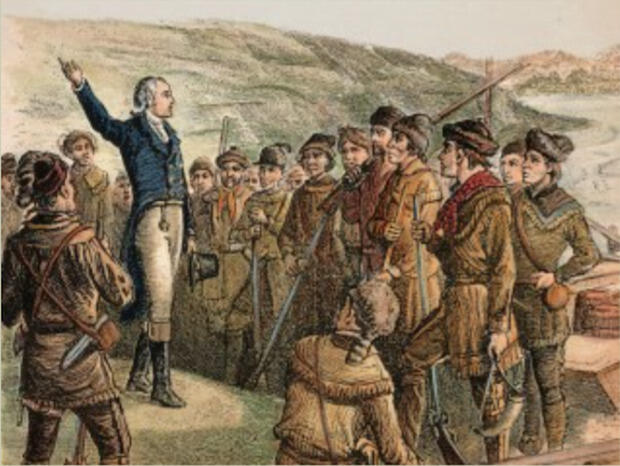
Sept. 24, 2018
Author of ‘The Burr Conspiracy: Uncovering the Story of an Early American Crisis’ to speak at VCU
Historian James E. Lewis Jr., Ph.D., will discuss the Aaron Burr trial, which took place in Richmond in 1807.
Share this story
James E. Lewis Jr., Ph.D., a leading historian of the American Revolution and early American republic, will visit Virginia Commonwealth University next month to speak about his 2017 book, “The Burr Conspiracy: Uncovering the Story of an Early American Crisis.”
Lewis, a professor of history at Kalamazoo College, will speak at 5:30 p.m. on Wednesday, Oct. 3, in the Lecture Hall (Room 303) of James Branch Cabell Library, 901 Park Ave. The event is free and open to the public.
The lecture, “Making Sense of the Burr Conspiracy,” is sponsored by the Society of the Cincinnati in the State of Virginia and the VCU Department of History in the College of Humanities and Sciences.
In his talk, Lewis will tell the story of one of the 19th century’s most celebrated and controversial trials, which took place in Richmond in 1807. The defendant was Aaron Burr — Revolutionary War hero, slayer of Alexander Hamilton, and former vice president of the United States. The most important of the charges against him was treason.
How had Burr come to that point? How had the conflicting rumors and reports of Burr’s sketchy activities in the American West in the years before his trial produce a sense of crisis in the new nation? Why did so many Americans fear that their government and country were in jeopardy? Lewis’ talk will highlight the various political and cultural forces that shaped the conspiracy, the broader sense of national crisis, and the dramatic trial that led to a surprising outcome.
In addition to “The Burr Conspiracy: Uncovering the Story of an Early American Crisis,” which was published by Princeton University Press, Lewis is the author of numerous books, including histories of John Quincy Adams, the Louisiana Purchase, the diplomatic history of the United States and the Spanish Empire, the fraught “Revolution of 1800” in the electoral hijinks between John Adams and Thomas Jefferson, and many other subjects. Two of his previous books were named Choice Outstanding Academic Books.
Subscribe to VCU News
Subscribe to VCU News at newsletter.vcu.edu and receive a selection of stories, videos, photos, news clips and event listings in your inbox.













